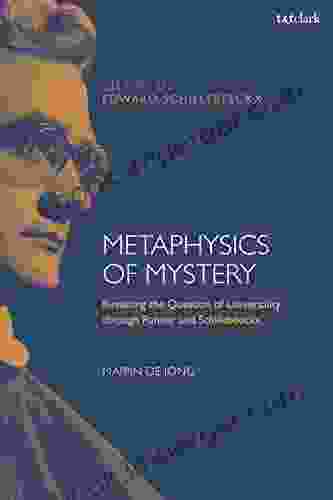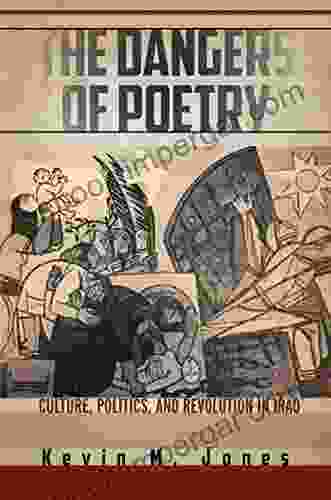Revisiting The Question Of Universality Through Rahner And Schillebeeckx

The concept of universality in religion has sparked intense debate and discussion throughout history. The question of whether there is a single, underlying truth that transcends all religious traditions has perplexed theologians, philosophers, and scholars for centuries. In this article, we will revisit the question of universality through the lens of two prominent theologians, Karl Rahner and Edward Schillebeeckx. Their influential ideas offer a fresh perspective on this complex topic, shedding light on the multifaceted nature of religion and its relevance in contemporary society.
Karl Rahner: Transcendent and Immanent
Karl Rahner, a German Jesuit theologian, emerged as a leading figure in the 20th-century Catholic Church. His profound insights into the relationship between God and humanity had a significant impact on theological thought. Rahner's concept of universality in religion is rooted in his understanding of the transcendent and immanent dimensions of God. He believed that God is both utterly transcendent, beyond human comprehension, and also immanent, present within the depths of human consciousness.
4.8 out of 5
| Language | : | English |
| File size | : | 941 KB |
| Text-to-Speech | : | Enabled |
| Screen Reader | : | Supported |
| Enhanced typesetting | : | Enabled |
| Print length | : | 328 pages |
Rahner's influential theory of "anonymous Christianity" suggests that all human beings, regardless of their religious affiliation or lack thereof, can participate in the saving grace of Christ. He argued that even those who do not explicitly acknowledge Christ as their savior may still be living in accordance with his teachings and experiencing the divine presence through their actions and intentions. This concept challenges traditional notions of exclusivity and posits that salvation is not confined to any particular religious group.
Edward Schillebeeckx: Horizontal and Vertical
Edward Schillebeeckx, a Dutch Dominican theologian, built upon Rahner's ideas and further developed the concept of universality in religion. Schillebeeckx introduced the distinction between the "horizontal" and "vertical" dimensions of religion. The horizontal dimension encompasses the social, historical, and cultural aspects of religious experience, while the vertical dimension refers to the transcendent realm of the divine.
According to Schillebeeckx, true universality in religion must embrace both the horizontal and vertical dimensions. He emphasized the importance of interfaith dialogue and understanding, arguing that different religious traditions offer valuable insights into the multifaceted nature of the divine. Schillebeeckx's work challenges the idea of a single, monolithic truth and instead promotes a more inclusive and pluralistic view of religion.
Supernatural Existential and Religious Experience
Both Rahner and Schillebeeckx acknowledged the importance of religious experience in the quest for universality. Rahner spoke of the "supernatural existential," a hidden dimension of human existence where God's presence can be encountered. He believed that all human beings have the capacity for such experiences, regardless of their religious beliefs.
Schillebeeckx, in turn, emphasized the role of phenomenology of religion in understanding religious experience. He argued that by studying the lived experiences of religious people, we can gain valuable insights into the nature of the divine and the ways in which it manifests itself in different cultures and traditions.
Inclusivism and Pluralism
Rahner and Schillebeeckx's ideas have significantly influenced contemporary discussions on inclusivism and pluralism in religion. Inclusivism holds that Christianity is the fullest expression of truth, while acknowledging that elements of truth can be found in other religions. Pluralism, on the other hand, suggests that all religions are equally valid paths to the divine.
While Rahner could be classified as an inclusivist, Schillebeeckx leaned more towards pluralism. He argued that the fullness of truth is not confined to any single religion but is rather a mosaic composed of the insights and experiences of all religious traditions.
History of Religions
The study of the history of religions has also played a crucial role in shaping our understanding of universality. By examining the diverse religious beliefs and practices of different cultures throughout history, we can gain a broader perspective on the nature of religion and its significance in human existence.
The history of religions reveals that religious beliefs and practices have evolved and adapted over time, reflecting the unique experiences and circumstances of each culture. This diversity challenges the notion of a single, universal truth and instead highlights the dynamic and multifaceted nature of religion.
Revisiting the question of universality through the perspectives of Karl Rahner and Edward Schillebeeckx provides a rich and nuanced understanding of this complex topic. Their ideas challenge traditional notions of exclusivity and promote a more inclusive and pluralistic view of religion.
Rahner's concept of anonymous Christianity and Schillebeeckx's focus on the horizontal and vertical dimensions of religion emphasize the importance of both transcendent and immanent aspects of the divine. Their work encourages interfaith dialogue and understanding, recognizing the value of different religious traditions in the quest for truth.
The study of religious experience, the history of religions, and the ongoing dialogue between different religious perspectives all contribute to a deeper understanding of the multifaceted nature of universality in religion. As we continue to explore this enigmatic subject, the insights of these renowned theologians will continue to guide and inspire our search for truth and meaning.
4.8 out of 5
| Language | : | English |
| File size | : | 941 KB |
| Text-to-Speech | : | Enabled |
| Screen Reader | : | Supported |
| Enhanced typesetting | : | Enabled |
| Print length | : | 328 pages |
Do you want to contribute by writing guest posts on this blog?
Please contact us and send us a resume of previous articles that you have written.
 Book
Book Novel
Novel Page
Page Chapter
Chapter Text
Text Story
Story Genre
Genre Reader
Reader Library
Library Paperback
Paperback E-book
E-book Magazine
Magazine Newspaper
Newspaper Paragraph
Paragraph Sentence
Sentence Bookmark
Bookmark Shelf
Shelf Glossary
Glossary Bibliography
Bibliography Foreword
Foreword Preface
Preface Synopsis
Synopsis Annotation
Annotation Footnote
Footnote Manuscript
Manuscript Scroll
Scroll Codex
Codex Tome
Tome Bestseller
Bestseller Classics
Classics Library card
Library card Narrative
Narrative Biography
Biography Autobiography
Autobiography Memoir
Memoir Reference
Reference Encyclopedia
Encyclopedia Khiara M Bridges
Khiara M Bridges Kfir Luzzatto
Kfir Luzzatto Ken Ilgunas
Ken Ilgunas Kevin Volkan
Kevin Volkan Kimberley Moran
Kimberley Moran Kenneth Blum
Kenneth Blum Kia Byrd
Kia Byrd Kenneth C Springirth
Kenneth C Springirth Kenneth T Walsh
Kenneth T Walsh Kenneth J Doka
Kenneth J Doka Kerri Shields
Kerri Shields Kia Hamadani
Kia Hamadani Kim Henderson
Kim Henderson Kenneth H Kolb
Kenneth H Kolb Kimberly Whittaker
Kimberly Whittaker Kerri M Williams
Kerri M Williams Kevin Hand
Kevin Hand Kimberly Luse
Kimberly Luse Kenny Rogers
Kenny Rogers Kenneth P Werrell
Kenneth P Werrell
Light bulbAdvertise smarter! Our strategic ad space ensures maximum exposure. Reserve your spot today!

 W. Somerset MaughamAn Introduction To Efficient And Effective Charting In The Emergency...
W. Somerset MaughamAn Introduction To Efficient And Effective Charting In The Emergency...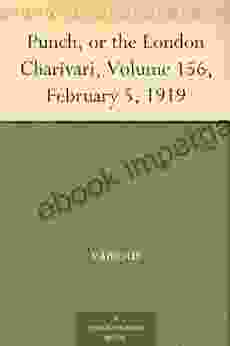
 Andres CarterPunch, or the London Charivari: A Weekly Journal of Humor and Satire, Volume...
Andres CarterPunch, or the London Charivari: A Weekly Journal of Humor and Satire, Volume... Hayden MitchellFollow ·8.1k
Hayden MitchellFollow ·8.1k Clark BellFollow ·15.5k
Clark BellFollow ·15.5k Ralph TurnerFollow ·6.1k
Ralph TurnerFollow ·6.1k James JoyceFollow ·19.3k
James JoyceFollow ·19.3k John MiltonFollow ·3.5k
John MiltonFollow ·3.5k Christian BarnesFollow ·13.8k
Christian BarnesFollow ·13.8k Ralph Waldo EmersonFollow ·5.2k
Ralph Waldo EmersonFollow ·5.2k Branson CarterFollow ·5k
Branson CarterFollow ·5k

 Chadwick Powell
Chadwick PowellDiscover the Secrets of Optimal Health with "The Healthy...
Preface: Embark on a Transformative...

 Andres Carter
Andres CarterUnveiling the Profound Journey of Womanhood: A Daughter's...
In the tapestry of...
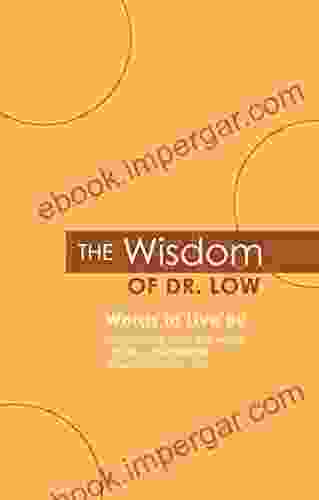
 Travis Foster
Travis FosterWords to Live By: The Essential Guide to Finding...
Words have the power to shape our...

 Chinua Achebe
Chinua AchebeThe Ultimate Guide for Men to Recover from a Breakup
: Breakups are never...
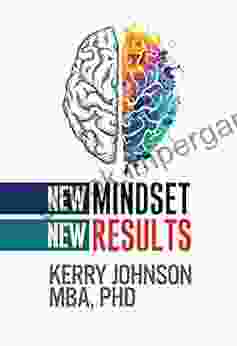
 Spencer Powell
Spencer PowellNew Mindset, New Results: The Proven Path to Unleashing...
About the Book ...
4.8 out of 5
| Language | : | English |
| File size | : | 941 KB |
| Text-to-Speech | : | Enabled |
| Screen Reader | : | Supported |
| Enhanced typesetting | : | Enabled |
| Print length | : | 328 pages |


